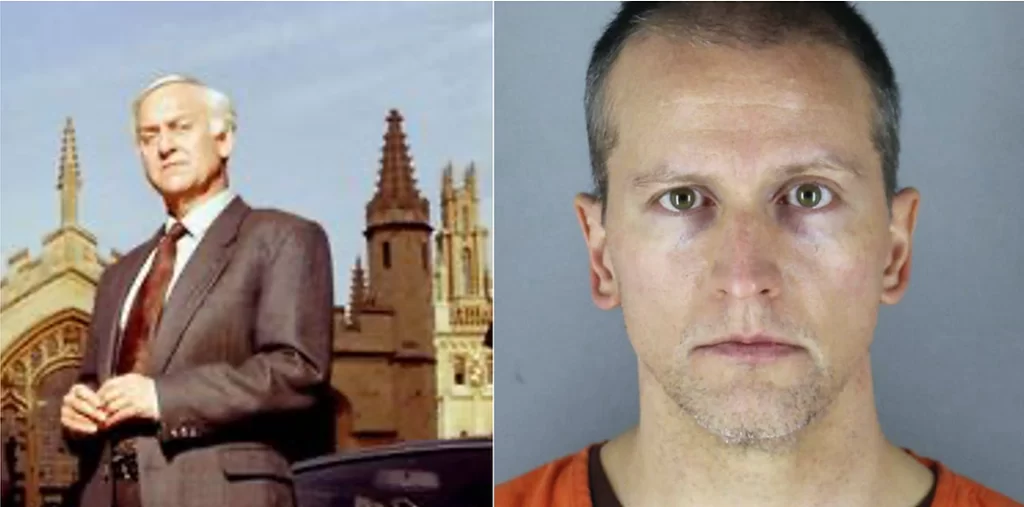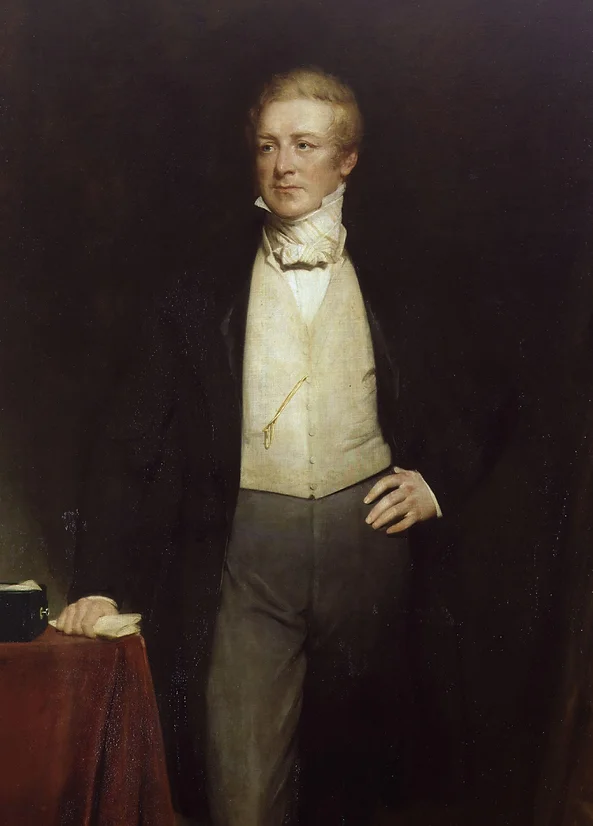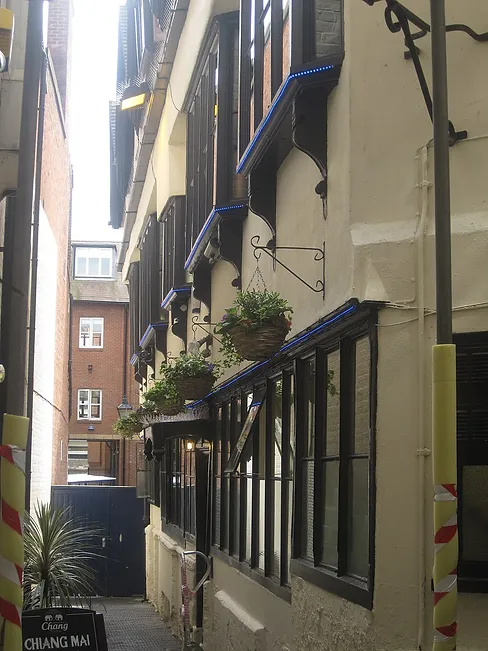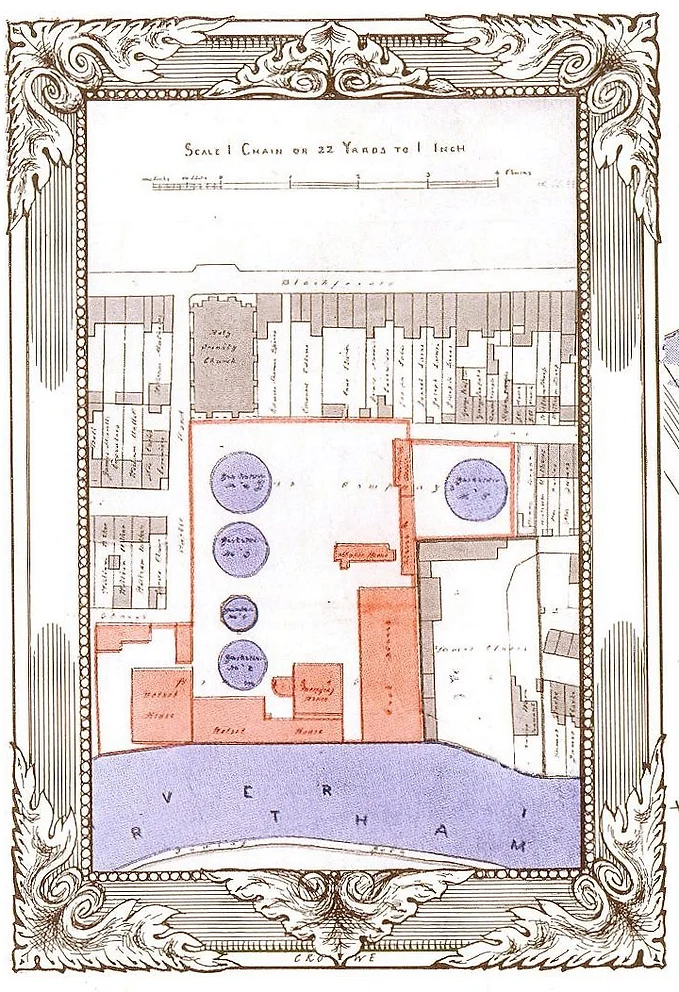When we think of policing in Oxford, the most enduring image that comes to mind is a fictional one: the dapper detective Inspector Morse. Yet in recent months it has been increasingly difficult to reconcile this gentlemanly vision with footage of officers brutalising civilians everywhere from Minsk to Minnesota. Oxford has not been exempt from the global wave of protests sparked by these developments, inviting us to consider whether Morse has given way to Derek Chauvin as the public face of law enforcement.
When we think of policing in Oxford, the most enduring image that comes to mind is a fictional one: the dapper detective Inspector Morse. Ever since 1975, Colin Dexter’s creation has been treading the city’s beat in novels, TV shows, spinoffs, and prequels, always a reassuring presence as he tracks down crooks in his own cerebral style. Yet in recent months it has been increasingly difficult to reconcile this gentlemanly vision with footage of officers brutalising civilians everywhere from Minsk to Minnesota. Oxford has not been exempt from the global wave of protests sparked by these developments, inviting us to consider whether Morse has given way to Derek Chauvin as the public face of law enforcement.
Indeed, there are some who maintain that this should have happened long ago. The burgeoning police abolition movement has built its case for radical reform not only on the events of 2020, but also on a historical argument; supporters claim that modern policing has been flawed since its inception, and that its original purpose was not to protect citizens from crime, but to serve the ruling class by suppressing dissidents, the poor, and the non-white. It is therefore a useful moment to delve into the early history of the police in Oxford, and to examine why – and with what consequences – coppers first came to patrol its cobblestones.

The godfather of British policing is generally acknowledged to be Robert Peel, the Christ Church alumnus who founded the nation’s first professional law enforcement agency (London’s Metropolitan Police) in 1829. Even before this innovation, Oxford was one of the many towns experimenting with new methods of keeping order in an era unsettled by the ongoing effects of the French and Industrial Revolutions. The local situation was complicated by the city’s divided power structure, as civic authorities periodically chafed at the vast array of legal privileges which effectively made Oxford University into a rival shadow government. In February 1825, the mayor struck a blow against the scholars by discontinuing the symbolic annual tribute paid to the university, which had been imposed upon the townsfolk as penance for killing students in a medieval riot. However, the academics were soon gifted fresh means to assert their control; in July of that year, new parliamentary legislation gave the leaders of both Oxford and Cambridge Universities the power to appoint constables who could enforce the law on anyone within four miles of their campuses.

The creation of the university’s own private constabulary (later known as ‘Bulldogs’ or ‘Bullers’) was thus targeted at multiple opponents. On one hand, the 1825 Universities Act reflected property-holders’ fears about declining standards of discipline and morality among the restive lower classes; one clause gave the constables authority to arrest “every common Prostitute and Night-walker” on university grounds and charge them under the 1824 Vagrancy Act, which criminalised homelessness.[1] On the other hand, it also represented a new phase in an intra-elite struggle, and caused the town’s merchants and business-owners to express “lively apprehensions” about the new legislation to one of their local MPs, John Ingram Lockhart. Lockhart conveyed these concerns to his opposite number among the university’s representatives (in this period, Oxford’s citizens and graduates had separate constituencies with two MPs each), but this was Peel himself, so little sympathy was to be had. The creation of the constabulary could not be undone, and the only way for the leading townsfolk to respond was in kind. This process began ten years later, when the civic authorities created a ‘Watch and Ward’ force of their own. Its initial resources were small – the total budget for its first year of operation was £418, compared to a salary of £500 for the Town Clerk alone – but it did succeed in restoring a kind of parity between municipal and university authorities, who reached an agreement whereby the former’s watchmen patrolled during the day, while the Bulldogs kept order at night.

This compromise paved the way for the eventual deal that would produce Oxford’s modern police force in the 1860s. In the meantime, the model pioneered by the Met in London had gained traction nationwide, with fully professionalised constabularies popping up across the country. It steadily won over members of the upper classes who were initially sceptical, such as the arch-conservative baronet William Heathcote, who went on to become an MP for the university. He began by denouncing Peel’s “French police” as a tyrannical imposition, and relied on ad hoc militia mobilisations to crush rebellious farm-workers in the 1830 Swing Riots. However, by the 1850s he was praising the police in Parliament for their success at reducing housebreaking. In 1868, his conversion became complete when he joined Oxford’s other three MPs in presenting to the House of Commons a “petition of the Chancellor, Masters, and Scholars of the University of Oxford, and the Mayor, Aldermen, and Citizens of the City of Oxford, for leave to bring in a Bill for the establishment of a united Constabulary Force in and for the University and City.” This petition formed the basis for a united Oxford City Police, which was to be administered by a committee of nine civic and six academic representatives, with the town council footing 60% of the bill and the university the remainder.

The leaders of town and gown had succeeded in burying the hatchet, at least as far as law enforcement was concerned, but the introduction of the new police force was not to pass without resistance. Barely a month after the combined force was established, a young constable (Joseph Gilkes, one of six Met Police officers recruited to help professionalise the new unit) got into an altercation with a group of locals who had gathered to buy meat on Blackfriars Road in St Ebbes. This was Oxford’s first industrial district – home to the ‘Oxford University and City Gas Light and Coke Company’, symbol of another, more commercial alliance between academics and businessmen – and one of its most impoverished neighbourhoods; later, the poet W.H. Auden was to describe it as the real-world embodiment of “the Waste Land” sketched out by T.S. Eliot. After trying to disperse the crowd, Gilkes was confronted by a woman who allegedly shouted “Who are you? We shall do as we like!”, before throwing a meat dish at him when he attempted to seize her. Pursued down to the river and pelted with further objects, he tried to escape by swimming across the Thames, only to be swept away and drowned.
As this young constable learned at tragic cost, the introduction of policing to Oxford does seem to have been heavily mired in class politics. Its backstory is not solely a tale of the few versus the many, since its forerunners also partially owed their existence to a long-running feud within the city’s elite. Indeed, the effects of this feud on law-enforcement lasted all the way into our century; although their role was steadily diminished, Oxford University’s private policemen continued to exist until 2003, when a dispute with an alliance of market traders helped to ensure that the Bulldogs were finally put down.[2] Nonetheless, the 1868 merger does mark the moment at which the scholarly and mercantile factions of Oxford’s ruling class put many of their differences aside in order to defend their common interests, often at the expense of those lower down the social scale. As Gilkes’ crockery-throwing assailant showed, some segments of the urban population saw the introduction of professional police not as a source of protection, but as an invasion designed to curtail their freedoms. The growth of law enforcement could provide empoyment opportunities for young working-class men (such as rural labourer Charles Herbert, who joined the Bullers in 1851), but only at the cost of pitting them against many of their fellows. The healing of the rift within the city’s elite thus depended on opening up new divisions among its poor.

Broadly speaking, then, Oxford’s experience bears out the claim that conflict between the police and marginalised communities goes all the way back to the former’s birth. Whether or not policing’s nineteenth-century origins constitute a compelling argument for defunding it now is perhaps a separate issue (as a comparable example, income tax was invented primarily to fund Britain’s suppression of the French Revolution, but this is not generally seen as a reason to abolish it), and one beyond the scope of this article. But where does all this leave Inspector Morse? In actual fact, it appears that the detective’s imaginary career is not wholly divorced from reality. After all, many people watched the TV series not for its crime-busting plots, but for the prickly personal relationship between snobbish, Oxford-educated Morse and his working-class partner, Lewis. By focusing on co-operation and conflict between two men of very different backgrounds, the show captures on a human scale some of the tensions – town versus gown, rich versus poor – that have shaped law enforcement in Oxford for the last two hundred years.
Written by Louis Morris
Notes:
[1] It is interesting to speculate why – alone of all the measures in the Act – this clause was applied solely to Oxford and not to Cambridge. In any case, in 1938 this part of the legislation was attacked in Parliament for its moralising language, described by one MP as “quite out of line with the whole of English law and equity.” It was eventually removed, but the Vagrancy Act of 1824 remains on the statute book to this day.
[2] Technically, the Bullers still outlived Oxford City Police, which existed as an independent institution for a century before being combined with four other regional forces to form Thames Valley Constabulary.





